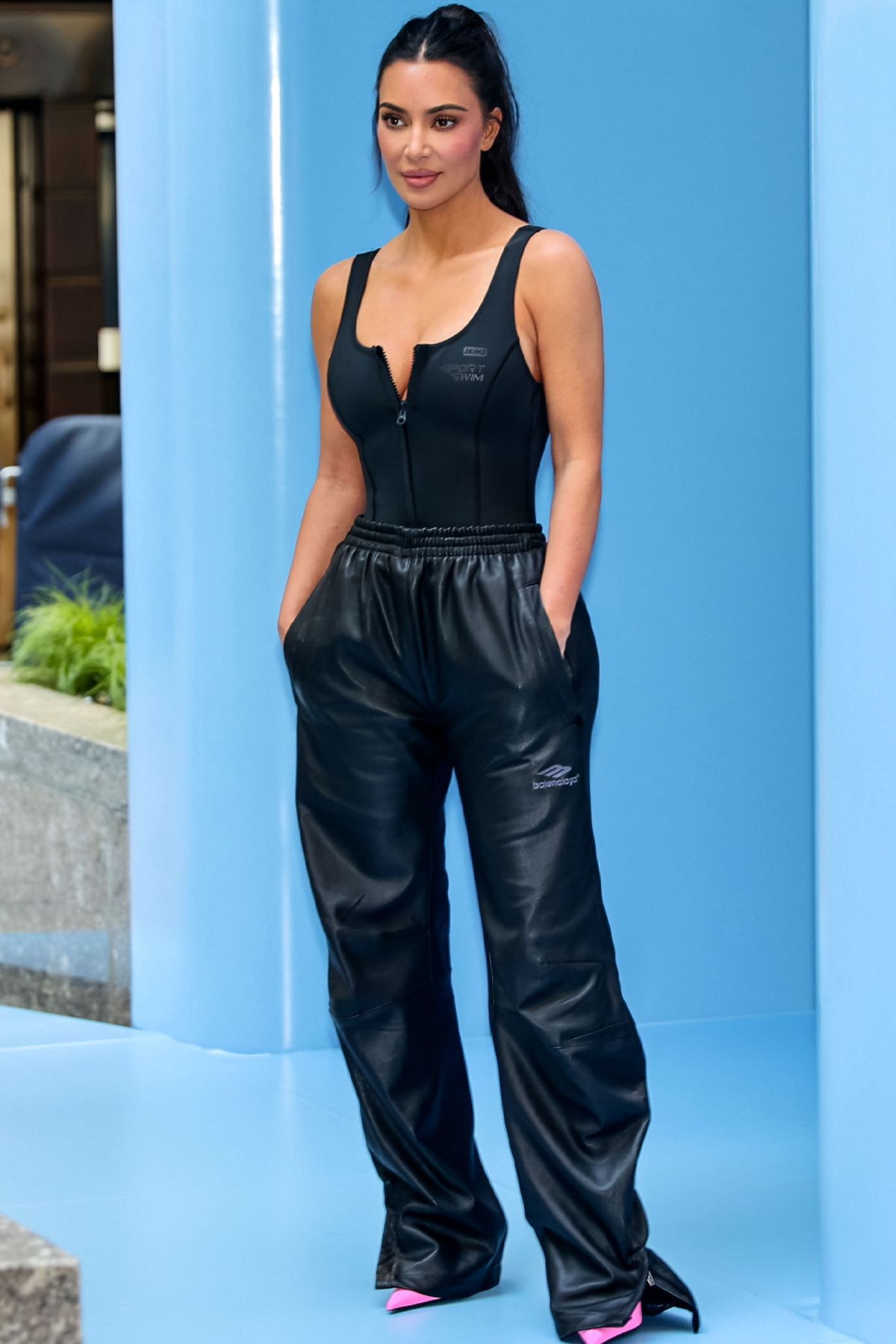
The Kim Kardashian and Coty partnership may be coming to an end.
Just a year after Kardashian re-launched her beauty brand in partnership with the conglomerate, the 42-year-old entrepreneur and reality TV star is in talks to buy back Coty’s minority stake, according to reports to WSJ. Coty paid $200 million in 2020 for 20 percent of Kardashian’s business, with plans to co-develop a multi-category brand spanning skin care, makeup and more. Following reports Wednesday, the firm’s stock dropped by 2.5 percent. Coty declined to comment. Kardashian did not respond to requests for comment.
Despite the success of Skims, the shapewear turned lifestyle juggernaut now valued at $4 billion, Kardashian’s beauty venture may not be faring as well as both parties initially expected.
Last June, Kardashian unveiled SKKN by Kim with an ambitious nine-piece skin care line, which totalled $630 for the whole collection. The brand hasn’t released any products since, an anomaly for modern direct to consumer beauty lines trying to keep up with customer demand for newness, and a Sephora rollout may have been put on hold. According to a source with knowledge of the business, SKKN by Kim was supposed to enter the LVMH-owned retailer this year. (Sephora did not respond to request for comment.) Kardashian did however tell Twitter followers in June that that makeup and fragrance – under the SKKN label – were coming later this year.
It’s not yet clear if Kardashian was unhappy with the brand under Coty’s stewardship or if Coty is trying to offload the brand in the midst of a major company-wide refocus. Experts say it’s a bit of both.
Coty’s Next Phase
Coty’s priorities have shifted, as has the beauty landscape overall, since its initial investment in Kardashian three years ago. Instead of trying to appeal to Gen-Z and win with celebrity, the company is set on strengthening its global footprint – by returning to its own European roots and through market expansion in places like Asia – and investing in premium skin care and fragrance. The beauty giant is currently exploring a dual listing on the Paris Stock Exchange (Coty was founded in France nearly 120 years ago and went public on the NYSE in 2013).
The move is a departure from Coty’s current portfolio, mostly owned mass labels like CoverGirl and Max Factor and licensing deals, which make up the bulk of its luxury business.
“They [Coty] were definitely late to the party in China – they don’t want to do that in India. That’s going to take a lot of capital to expand over there, and probably with very different brands than what they have, which are very Euro and US-centric,” said Alexandre Terseleer, principal at Kearney’s transactions and transformation practice.
The company is also refining its strategy through investments in brands like Lancaster, the skin care line famously used by Princess Grace of Monaco, which in March relaunched its most high-end collection, Ligne Princière, in China. At the Cannes Film Festival in May, Coty revealed two more luxury offerings: “Infiniment Coty Paris,” and a new Omnipotent Concentrate serum from skin care line Orveda.
Going forward, Coty has less use for Kardashian’s skin care, which pricewise classifies as prestige but is not considered ultra-luxury, nor does it have the credibility of decades-old brands with royal ties. Plus, in China, where Coty is making some hefty investments, the Skims founder doesn’t have the level of influence she has in the US and Europe.
But the emphasis isn’t just on luxury for Coty, which currently owns the licenses for Gucci, Burberry, Calvin Klein and other designer beauty businesses. With Gucci parent Kering hard at work building a robust in-house beauty arm, it’s likely that the licence for Gucci Beauty, one of the portfolio’s biggest money makers, could expire in five years, according to Coty CEO Sue Y. Nabi. The loss would be a crushing blow for Coty, which is in the midst of expanding its own brands to insulate itself from ever being too reliant on a licensee or minority investment.
Changing Celebrity Sentiment
In the midst of celebrity and influencer beauty mania, Coty placed big bets on the power of famous founders.
And America’s most famous family doesn’t come cheap. Coty paid $200 million for just 20 percent of a yet-to-be-created SKKN by Kim, valuing Kardashian’s future beauty endeavours at $1 billion. A year earlier, in a bid to attract Gen-Z, the company paid $600 million for a majority stake in sister Kylie Jenner’s Kylie Cosmetics.
Since then, dozens of celebrity brands have come out, from John Legend, Brad Pitt and Idris Elba to Gwen Stefani, Scarlett Johansson and Courteney Cox. Many – but not all – have been met with mixed consumer sentiment or failed to gain traction, with the exception of Selena Gomez’s Rare Beauty.
“The reason Skims is successful is because, what is Kim known for? Her body. And who do I trust to manipulate the shape of my body? Kim… Skims is so authentic to her the way the lip kit was to Kylie,” said Alexis Page, a beauty branding consultant who has worked with MAC Cosmetics, Glossier and Pat McGrath Labs.
Skin care was already a reach for Kardashian – many wondered why she didn’t start with makeup – but SKKN by Kim’s nine-step collection felt out of touch with the current move towards “less is more” routines. Plus, products nearing $100 a piece were out of reach for the majority of her customer base.
Kardashian’s effect on beauty is undeniable; it’s her track record in actually selling product that remains to be seen. SKKN by Kim was already a relaunch of Kardashian’s KKW Beauty, which shuttered its makeup and fragrance businesses after Coty’s investment. So far, Kardashian has done masstige and higher end beauty; what could a third incarnation of her beauty brand possibly look like?
Taking Back Control
While celebrity founders have bought out equity partners before, such as Millie Bobby Brown, who in 2020 bought a majority stake of her Florence by Mills from incubator Beach House Group, it’s rare that these ventures are valued at one billion dollars.
The eight figure valuation of Kardashian’s beauty line makes a change in ownership far more tricky. Negotiations could get complicated, simply because of the optics. At such an inflated price, to buy the brand back (even with help from SKKY Partners, the private equity firm she co-founded last year with Jay Sammons) at a lower value would be perceived as a miss.
“It’s a game no one can win,” Terseleer said. “If you buy it [back] cheaper then it’s a recognition of a failure, and if you buy it [back] more expensive then you basically lose money.”
Or maybe this is an opportunity for Kardashian to try her hand at beauty without the help of partners like Coty or Seed Beauty, her former KKW Beauty manufacturer and parent company of ColourPop. Even better, it could be time to bring beauty under the umbrella of Skims, which has proved to be a bonafide lifestyle brand.



